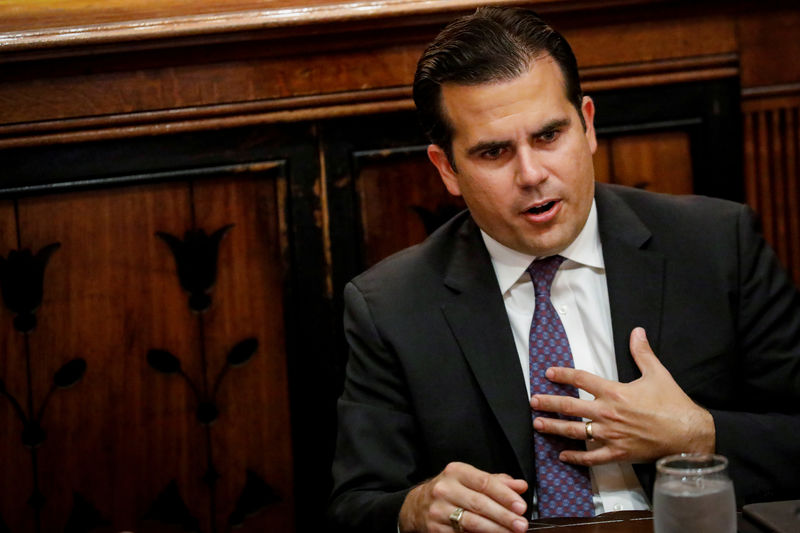By Luis Valentin Ortiz
SAN JUAN (Reuters) - Puerto Rico's federally created financial oversight board sued the bankrupt U.S. commonwealth's governor and fiscal agency on Wednesday over a new law that transfers municipal pension and health insurance costs to the government.
The litigation marked the latest skirmish in an ongoing battle between the board and the government over spending priorities.
The board said it is seeking to invalidate the measure known as Law 29 because it does not comply with its certified fiscal plan that calls for municipalities to continue to cover those costs. It said this violates the 2016 federal PROMESA Act, which established the board and a debt restructuring process for Puerto Rico.
"Law 29 will undermine the government’s ability to pay pensions to all retirees whenever Puerto Rico’s government faces fiscal distress,” said Oversight Board Chairman José Carrión in a statement.
"Exempting municipalities and putting that burden on the commonwealth sets a terrible precedent that other employers may try to use in the future," he added.
The lawsuit was filed in federal court in Puerto Rico as part of the island's ongoing bankruptcy case to restructure about $120 billion of debt and pension obligations.
Law 29, which was enacted in May by Governor Ricardo Rossello, will add $311 million in additional government spending in fiscal 2020 and $1.7 billion through fiscal 2024, according to the lawsuit.
Christian Sobrino Vega, Puerto Rico's chief financial officer, said the government's legal team will review the lawsuit.
"The actions of the Government of Puerto Rico during this administration seek fiscal responsibility while also procuring the necessary resources for providing essential services to the citizenry. This includes and requires safeguarding the operation and finances of the municipalities,” he said in a statement.
Puerto Rico lawmakers passed a fiscal 2020 budget that includes funding for local pensions and health insurance costs to aid cash-strapped municipalities despite warnings from the board that Law 29 is inconsistent with the fiscal plan. On Monday, the board imposed its own budget on the government that does not include those costs.
After running out of pension assets, Puerto Rico's government turned to a "pay-as-you-go" system in which all public pension costs are paid through its general fund annually. The central government then gets reimbursed by public corporations, agencies and municipalities for payments made on behalf their employees.

Last year, Rossello sued the board over its imposed budget, arguing the panel exceeded its powers. Judge Laura Taylor Swain, who is hearing the island’s bankruptcy, ruled in August that the board has broad and exclusive authority over Puerto Rico’s budget under the PROMESA Act, although it cannot demand changes in law.